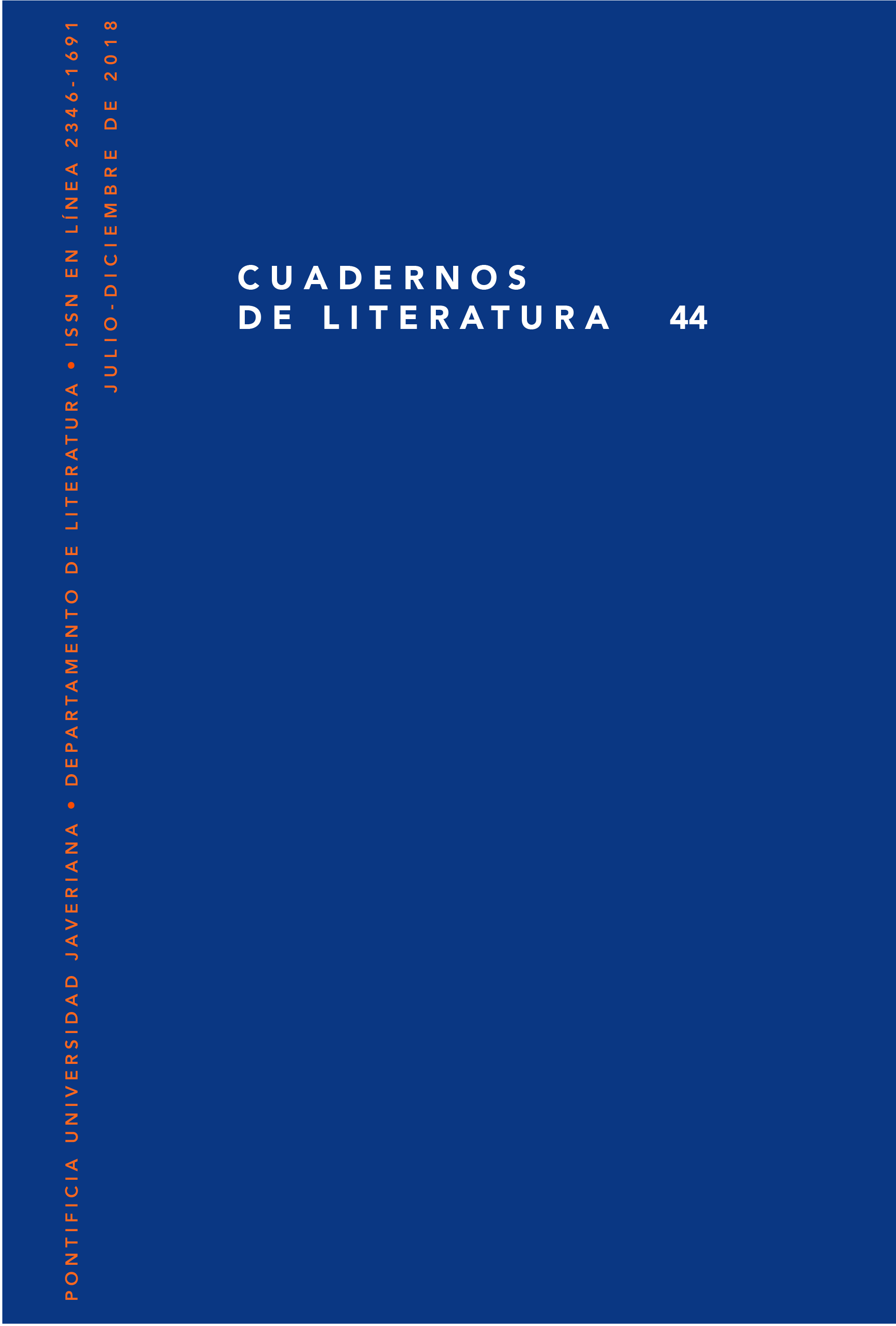Abstract
The purpose of this article is to analyze the relation between the concepts of property, taste and mass culture in three stories by Silvina Ocampo published in La furia (1959) and Los días de la noche (1970). I propose as a hypothesis that in these three stories, published during the post-Peron period, mass culture intrudes in the private life of the characters through the compulsive and cumulative acquisition of kitsch objects, the repetition of set phrases and clichés, the discourse of the written press and the radio, as well as other topics belonging to the massive genres.
Cuadernos de Literatura is registered under a Creative Commons Attribution 4.0 International Public License. Thus, this work may be reproduced, distributed, and publicly shared in digital format, as long as the names of the authors and Pontificia Universidad Javeriana are acknowledged. Others are allowed to quote, adapt, transform, auto-archive, republish, and create based on this material, for any purpose (even commercial ones), provided the authorship is duly acknowledged, a link to the original work is provided, and it is specified if changes have been made. Pontificia Universidad Javeriana does not hold the rights of published works and the authors are solely responsible for the contents of their works; they keep the moral, intellectual, privacy, and publicity rights.
Approving the intervention of the work (review, copy-editing, translation, layout) and the following outreach, are granted through an use license and not through an assignment of rights. This means the journal and Pontificia Universidad Javeriana cannot be held responsible for any ethical malpractice by the authors. As a consequence of the protection granted by the use license, the journal is not required to publish recantations or modify information already published, unless the errata stems from the editorial management process. Publishing contents in this journal does not generate royalties for contributors.


